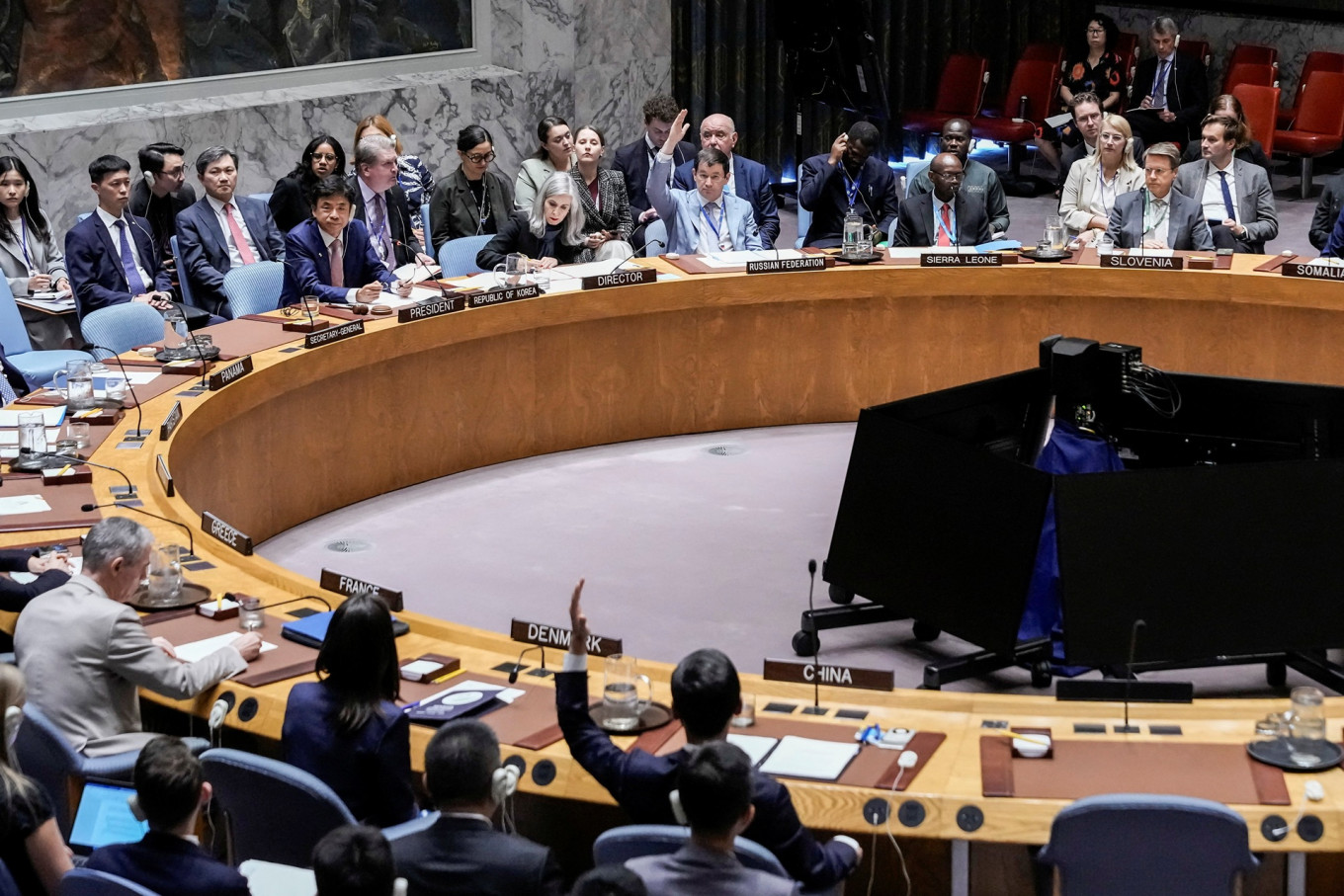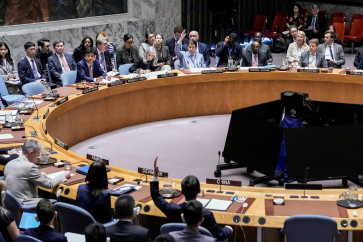Popular Reads
Top Results
Can't find what you're looking for?
View all search resultsPopular Reads
Top Results
Can't find what you're looking for?
View all search resultsDo or die for the United Nations
The organization is marking its anniversary in a world scarred by brutal and widespread conflicts, deep inequalities and injustice, flagrant violations of human rights and looming existential threats.
Change text size
Gift Premium Articles
to Anyone
M
ore than 140 world leaders traveled to New York in the United States last month to mark the United Nations’ unhappy 80th birthday. The world’s premier multilateral organization was created after World War II “to save succeeding generations from the scourge of war.”
But as UN Secretary-General António Guterres recently conceded, the organization is marking its “anniversary in a world scarred by brutal and widespread conflicts, deep inequalities and injustice, flagrant violations of human rights and looming existential threats.”
The central problem is that the UN’s success has always depended on cooperation between the five veto-wielding permanent members of the Security Council: the United Kingdom, China, France, Russia and the US. The grand bargain at the UN’s founding sought to balance great-power preponderance with some influence for smaller powers over socioeconomic matters and the UN budget. Ultimately, though, no one could forget that its headquarters were in New York, and that its charter was drafted largely by US State Department officials under the watchful eye of president Franklin D. Roosevelt.
Given this reality, US President Donald Trump’s speech to the General Assembly was an act of institutional infanticide. He not only dismissed the UN as irrelevant but questioned the very principles that have held its 193 members together: peacekeeping, organizing responses to global challenges, fostering international cooperation and financing development. Since his return to the White House, the US has withdrawn from the Paris climate agreement, the World Health Organization, and the UN Educational, Scientific and Cultural Organization.
Moreover, as of April 2025, the US owed the UN US$3 billion, unpaid budget commitments that come on top of its deep cuts to funding for development and humanitarian relief. The resulting financial strains have hamstrung the UN’s life-saving work around the world. Only half of the $50 billion in humanitarian funds requested in 2024 have been collected, and further cuts are threatening funding for 11.6 million refugees and 16.7 million food-insecure people under the care of various UN relief programs.
With Trump blithely brushing aside the UN’s many achievements, it is worth revisiting the organization’s successes and failures to determine where it might go next. These can be broken down into its three main mandates: global security, development and human rights.
In terms of security, the UN’s effectiveness was of course constrained for four decades by the Cold War, which prevented it from playing its envisaged role, as US and Soviet vetoes in the Security Council guaranteed paralysis. Nonetheless, the UN managed to improvise by deploying peacekeepers to many conflict zones over the years. The first such mission helped monitor a ceasefire along Israel’s border in 1948. Over the next 30 years, 12 additional missions were deployed to theaters like Lebanon, Egypt, the Democratic Republic of the Congo (DRC) and Yemen. Though not always successful, these efforts helped the world avoid a superpower-induced nuclear conflagration.



















